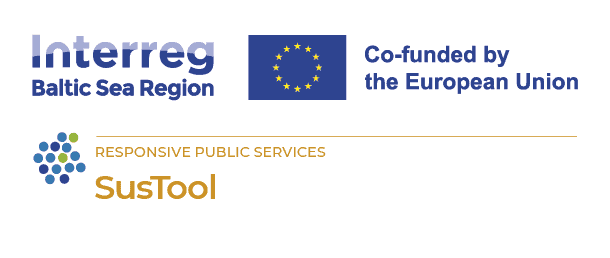
Driving sustainability and resilience: workshop and panel discussion highlights from EUSBSR Annual Forum 2024
13 December 2024
The European Union Strategy for the Baltic Sea Region (EUSBSR) Annual Forum took place from October 29–31, 2024, bringing together 582 participants on-site and 291 online viewers from 24 countries. The event provided a unique platform for regional collaboration, addressing critical topics such as sustainability, resilience, and digital transformation.
Among the event’s sessions was the Sustainable and Resilient Business Development Workshop, led by Kristi Aruküla and Joanna Annion from the Estonian Ministry of Economic Affairs and Communications, alongside a panel moderated by Kristi Aruküla on smart solutions for sustainable business environment.
The workshop, involving 21 participants from sectors such as the blue economy, civil society, and sustainability, focused on exchanging practices and building networks. Discussions addressed the use of digital twins for disaster prediction and improving crisis preparedness. Blue economy representatives proposed strengthening local collaboration, fostering marine innovation, and enhancing data exchange. Participants also emphasized the importance of sustainability reporting to help businesses navigate environmental challenges like climate change and biodiversity loss.
The panel, titled Digital and Smart Solutions for Supporting Sustainable Business Environments, featured Eva Killar (Estonian Ministry of Climate), Thomas Flank and Torbjörn Ull (Swedish Business Registration Office) and Lisbet Frey (DIMECC, Finland). The panellists used examples from the digital logistics projects eFTI4EU and eWallets to showcase how digitalisation enhances efficiency, streamlines processes for companies, and reduces administrative burdens. Lisbet Frey presented the ESG Tool, a platform developed through the SusTool project funded by Interreg Baltic Sea Region. The tool supports small and medium enterprises (SMEs) in understanding and navigating sustainability reporting requirements. By offering best practices, simplified corporate sustainability standards, and self-assessment tools, the ESG Tool helps businesses integrate sustainability into their operations.
The discussions illustrated how digitalization can reduce bureaucracy, foster collaboration, and support sustainable development. These sessions offered valuable insights to further the forum’s goals of advancing regional sustainability. Furthermore, it was emphasized that transnational large-scale collaborative projects play a crucial role in seeking common solutions that are interoperable and digitally connected across countries. The public sector must act as a driver in creating a digital business environment and ensuring the necessary conditions for its success.
More about the event here.





